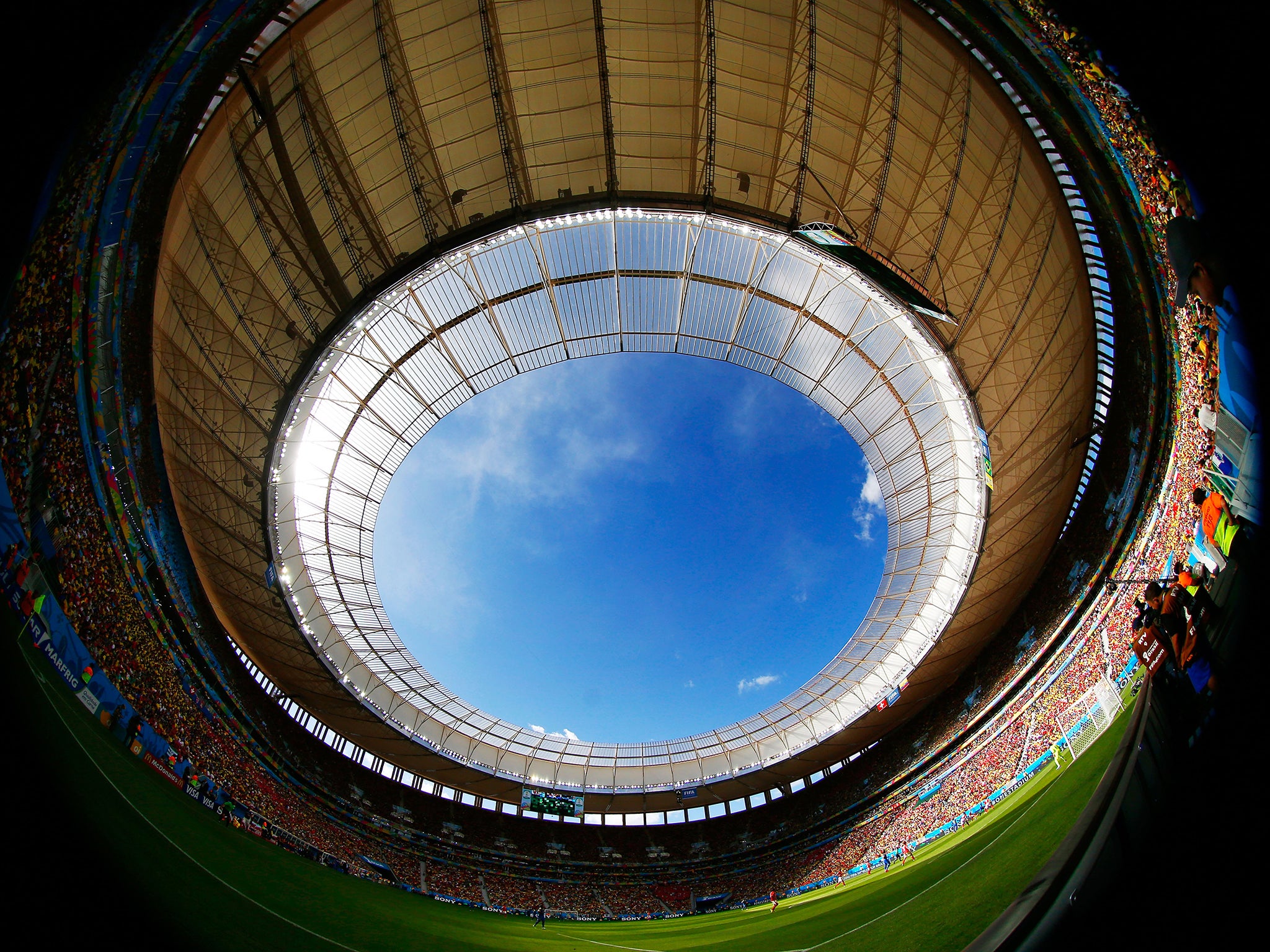Cameroon vs Brazil World Cup 2014 preview: Brazil prays for a football legacy, not one of waste
Brasilia stadium is a symbol of the World Cup’s excess, costing three times its original estimate

Your support helps us to tell the story
From reproductive rights to climate change to Big Tech, The Independent is on the ground when the story is developing. Whether it's investigating the financials of Elon Musk's pro-Trump PAC or producing our latest documentary, 'The A Word', which shines a light on the American women fighting for reproductive rights, we know how important it is to parse out the facts from the messaging.
At such a critical moment in US history, we need reporters on the ground. Your donation allows us to keep sending journalists to speak to both sides of the story.
The Independent is trusted by Americans across the entire political spectrum. And unlike many other quality news outlets, we choose not to lock Americans out of our reporting and analysis with paywalls. We believe quality journalism should be available to everyone, paid for by those who can afford it.
Your support makes all the difference.It’s the altar to the excess of the World Cup, the outstanding symbol of the culture of corruption that has left so many torn during this tournament, the monument to waste in a country of so much pain and poverty. Close to the roomy and pre-planned centre of Brasilia, with its neat rows of office blocks, each comprising a different government department, sits the Mané Garrincha stadium. The 288 giant pillars and general size make it a stunning sight, but not as stunning as the numbers behind its existence.
Consider this for a minute. Originally expected to cost around £175m, it ran to treble that, in the process making it the second-most expensive football ground ever built, behind only Wembley. The blown-apart budgets are hardly a surprise when you take as an example that £2,700 was allotted for the transportation of prefabricated grandstands but when the bill for this was handed to the taxpayer, it was nearing £900,000.
And what will happen after the circus has left town is unknown as none of the capital’s three main sides play anywhere near top-flight football and as a result they all struggle to attract even four figure attendances to most of their games.
Yet it all suddenly makes sense when you realise just down the road, some watchdogs claim 40 per cent of Brazilian congressmen have criminal cases pending against them and construction companies are some of the biggest political contributors. In fact, the company responsible for the Mané Garrincha, Andrade Gutierrez, donated more than £20m after it was awarded contracts for about a quarter of World Cup stadia, a jump from £43,000 in 2008.
It’s about as subtle as a David Luiz tackle. That’s why it’s such a contrast tonight as the Brazil so beloved by the people comes together with the Brazil so despised by its masses. And it’s why there’s been even greater pressure on the side to not just win, but to do it in some style.
President Dilma Rousseff’s celebration in the stands during the opening outing may have been partly down to patriotism but it was also partly down to relief. Local wisdom says that if the team excels, it’ll sooth the mood here for a little while and that should be remembered when judging everything from Neymar’s goal in the opener with Croatia to the goalless draw with Mexico.
The context of it all is important. Brazil have done just fine thus far given the weight of not just sport but also politics and vast social issues that rest on the side’s shoulders.
You got the feeling that being pre-tournament favourites was more to do with being hosts and the flaws of others than their own strengths because this is a Brazil side with some serious issues.
The limitations of striker Fred, in particular, mean there’s a need for the trio behind him to excel. Neymar can’t afford average days, Oscar can’t afford off days and Ramires can’t afford to be left on the bench as all must create come the second round.
As for Monday’s game with Cameroon, it’s hard to imagine anything other than the shackles coming off and the goals flowing, to the point where top-spot in Group A is assured with a performance more synonymous with the Brazil of the past rather than the structured, defensively efficient side of the present.
You can say that with a degree of certainty because of the opposition. If Cameroon take another thumping like last time out against Croatia, they’ll have lowered themselves into the bracket of North Korea 2010, Costa Rica in 2006 and Saudi Arabia 2002. They’ve been that bad.
Losing is nothing new for them as, since Roger Milla and Italia ’90, they’ve won just once in 14 games at the World Cup finals. But it’s the way they’ve conducted themselves that has been so disturbingly poor.
From delaying their arrival in order to try and get more money out of the national association to Benoît Assou-Ekotto butting heads with team-mate Benjamin Moukandjo, some sources have even suggested this could be a high-risk game in terms of betting patterns because the Africans have nothing left to lose.
But they have nothing left to win either and in an arena of excess, expect the hosts to finally excel.
Join our commenting forum
Join thought-provoking conversations, follow other Independent readers and see their replies
Comments